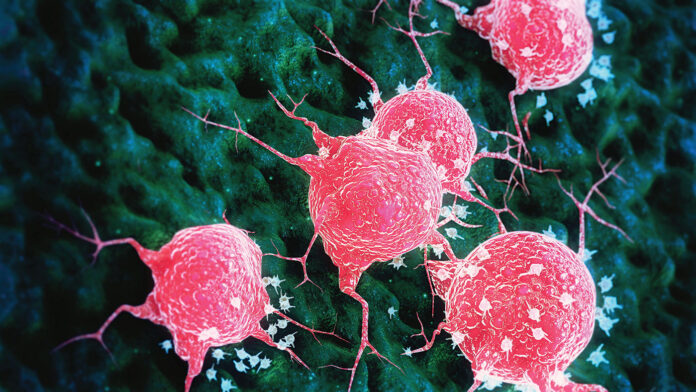
A next-generation sequencing (NGS)-based mutation signature more accurately detects mismatch repair deficiency, which can lead to microsatellite instability, than immunohistochemistry (IHC), according to research from a team lead by Amin Nassar, MD, of Yale Cancer Center.
Notably, Nassar and team saw that some cancer patients featuring mismatch repairs missed by IHC derived durable clinical benefit from immune checkpoint inhibitors.The research was recently published in the journal Cancer Cell. Nassar is the senior author.
Immunotherapy is approved by the FDA for the treatment for microsatellite instability across solid tumor types. “IHC is the standard test now for practical (quick turnaround time) and cost reasons,” Nassar told Inside Precision Medicine. “We believe that NGS is a complementary test that should not replace IHC but rather provide another layer of assessment.”
Nassar points out that the cost of NGS has gone down tremendously ( more than 5 fold) in the past decade, and NGS is being routinely preformed for most cancer types to determine actionable genomic mutations.
Mismatch repair deficiency, Nassar said, can be detected in almost any solid tumor type. Most commonly, it is seen in endometrial, gastric, colon and small intestinal cancers. However, it can still be detected in cancers such as lung cancer, breast cancer, thyroid cancer, and cholangiocarcinoma, among others. The hope is to test mismatch repair status uniformly across tumor types so that patients can derive benefit from immunotherapy based on this biomarker.
“This study has significant implications because, by changing the tests we use in certain situations, we anticipate that many more people can be accurately diagnosed and receive life-extending therapy,” says study co-author Abdul Rafeh Naqash, MD, of the OU College of Medicine and research member of the OU Health Stephenson Cancer Center.
This study compared the data of newly diagnosed cancer patients who received two different types of tests—IHC and NGS—to determine their course of treatment. The tests were looking for high levels of microsatellite instability. Microsatellite instability is usually found in people with colon cancer and endometrial cancer, and it is important to identify because those patients are much more likely to respond to immunotherapy drugs.
IHC looks for mismatch repair proteins, which normally fix mistakes when DNA is copied but, when deficient, cause microsatellite instability. NGS tests for genetic mutations associated with microsatellite instability.
After analyzing the data, the researchers say it was clear that NGS identified more patients with microsatellite instability. However, in their practices, oncologists use IHC much more often. That suggests a change in testing could result in more patients receiving the right treatment for their cancers.
Naqash said that in 2022, U.S. oncologists diagnosed 151,030 new cases of colon cancer and 65,950 new cases of endometrial cancer. Had NGS been used in combination with standard IHC testing, doctors would have discovered microsatellite instability in 1,510 additional cases of colon cancer and 3,891 additional cases of endometrial cancer. That means a total of 5,401 patients with microsatellite instability would have been missed if they received only IHC testing.
“Although IHC catches most cancer patients with high microsatellite instability, it doesn’t identify everyone,” Naqash said, “and we want as many as possible to receive the immunotherapy that can greatly reduce their cancer and, in some cases, eliminate it.”
Nassar said, “We are planning to test our NGS pipeline for calling mismatch repair deficiency in other cohorts. This would give more generalizability and validity to our results.”













